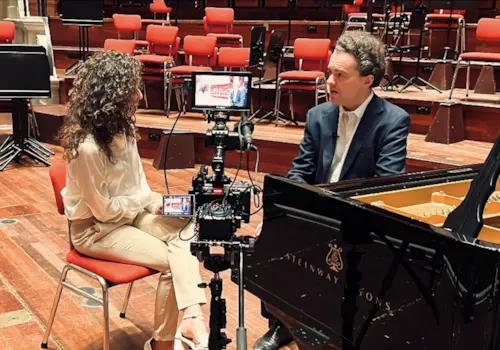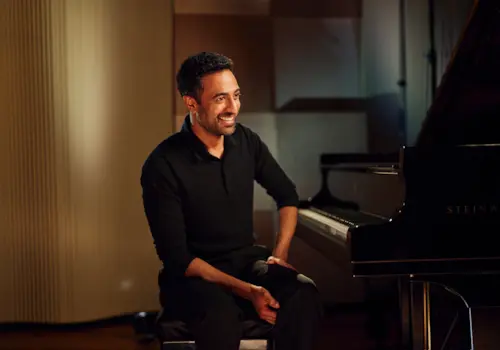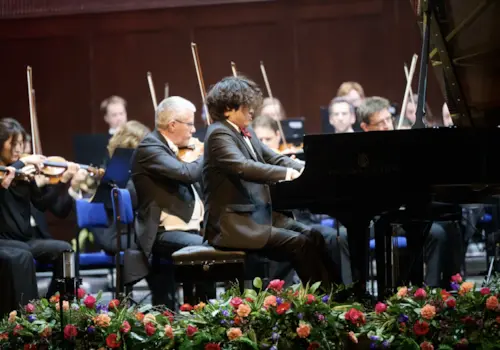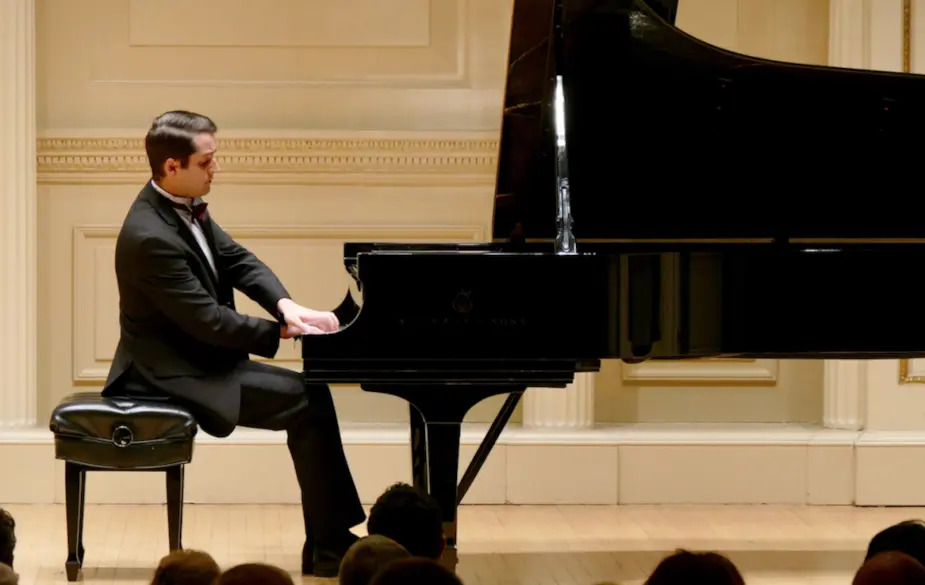14 June 2017
|
The Russian pianist played Beethoven, Schumann, Prokofiev & Mndoyants at New York's Carnegie Hall on 7 June.
Nikita Mndoyants
Carnegie Hall, New York City
7 June 2017
5 STARS
By Donald Hunt for Pianist magazine
There comes a time when a rising talent comes onto the scene so polished that there isn’t much to say other than to simply applaud it. Such is the case in the Carnegie Hall debut of Nikita Mndoyants, the winner of last year’s Cleveland International Piano Competition.
Mndoyants opened his debut with Beethoven’s Six Bagatelles, a set of six short works that Beethoven regarded as the best he had written up to that point in 1825. Beethoven is, of course, a taskmaster for pianists as his compositions require an astute level of musicianship and intelligence. This was evident in Mndoyants’ interpretation particularly in the Presto movement, in which he seamlessly made dynamic switches from technical flair to sensitive phrasing at the drop of a hat.
The second work of the program was Schumann’s Davidsbündlertänze Op 6. a tour de force in the Romantic piano repertoire. Schumann was one of the greatest composers ever at making a simple line sound complex. He dares the musician to find the emotion in each note and colour it with a specific shape that speaks to the narrative (in this case, the work is based on a mazurka by Clara Wieck)
My favourite movement in the set is the Lebhaft movement, and Mndoyants played like such a free spirit here. The way Mndoyants created extra space in each line felt similar to the stylistic traditions of great jazz pianists of the past and present (Bill Evans, anyone?).
The second half of the program started with Mndoyants’ Variations on a Theme of Paganini, which he composed ten years earlier as a student at the prestigious Moscow Conservatory. The piece was filled with many of Paganini’s elaborate music, most notably his Caprice No 24 in A minor. The music of Paganini can be characterized as virtuosity in its showiest form. This is sometimes all that appears on the surface when one listens to Paginini in the early stages. Mndoyants bypasses this aspect and instead created something much more nuanced, perhaps what Paginini would have assembled in this era (or close to it).
Being that Prokofiev is a Russian composer and Mndoyants is Russian himself, there was an innate sense of this already being in his body. In Prokofiev's Sonata No 8 in B flat major, I found Mndoyants playing with more ease and comfort than at any other point in the program. Whether it was capturing the upward and downward motion in the Andante dolce movement, the contemplative nature of the Andante sognando movement, or the energetic pizzazz of the Vivace movement, Mndoyants was in full command of his skills. In the final movement, Prokoviev wrote some circus-esque themes for the piano that Mndoyants escalated further in creating a push-pull tension all leading up to a thrilling finish.
Mndoyants played not one, not two, but three encores for the receptive New York audience that came in the order of Rameau’s Rappel des oiseaux, Chopin’s Mazurka Op 63 No 3, and the great showpiece that is Scarlatti’s Sonata G major.
All in all, this was a stunning start for Mndoyants as he embarks on an international career. With his program mostly sticking to conventional composers, I would love to see him tackle more new works in future recitals. Mndoyants also showed in his Beethoven performance that he could become one of the leading Beethoven interpreters. Wherever Mndoyants goes however, the piano world will surely be there to listen.
Watch Nikita Mndoyants' Cleveland International Piano Competition semi-final round recital:
More about Nikita Mndoyants
Further information about the Cleveland International Piano Competition
Photo: © Cleveland International Piano Competition







